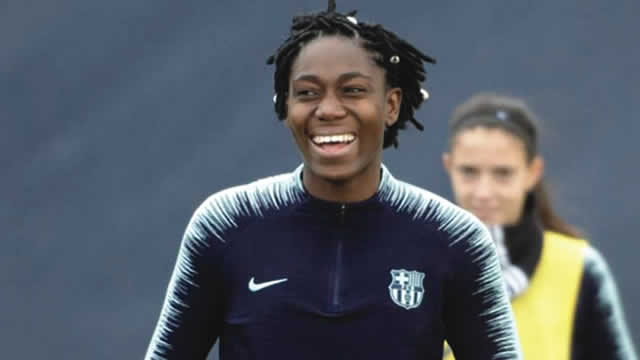Farid Benstiti, the coach of the Algerian women’s national football team, reflected on his close relationship with Nigerian football star Asisat Oshoala, reminiscing about their shared time at Dalian Quanjian in China. Benstiti, who helmed the Chinese club from 2017 to 2019, coincided with Oshoala’s tenure there, forging a bond that extended beyond the football pitch. He described Oshoala as being “part of his family,” emphasizing the close personal connection they developed during those two years. Benstiti recounted shared meals and the efforts he made to ensure Oshoala felt comfortable in her new surroundings. However, he also stressed that their personal closeness didn’t translate into preferential treatment on the training ground, where he demanded the best from her, pushing her to address both her strengths and weaknesses.
Oshoala’s time at Dalian Quanjian, facilitated by Benstiti’s belief in her potential, proved incredibly successful. In her inaugural season (2017), she spearheaded the club’s league championship victory, netting 12 goals and securing the Golden Boot award. She continued her stellar performance in the Women’s Super Cup, contributing four goals to the team’s triumphant 5-3 win over Shanghai. Oshoala’s impact continued into 2018, helping Dalian Quanjian secure a second consecutive league title. Across her two seasons, she amassed an impressive 23 goals in 20 appearances, cementing her status as a key player for the club. This success paved the way for her move to Barcelona in January 2019, a transition Benstiti supported, recognizing and encouraging her ambition.
The reunion between Benstiti and Oshoala took place at the 2024 Women’s Africa Cup of Nations (WAFCON) in Casablanca. This match marked the third encounter between Nigeria and Algeria in the tournament’s history, with previous meetings in 2004 and 2006 resulting in resounding victories for Nigeria (4-0 and 6-0, respectively). Benstiti viewed the match against Nigeria, a dominant force in African women’s football, as a valuable opportunity for his Algerian team. He acknowledged the challenge but emphasized the growth potential that comes from competing against the best.
Benstiti’s recruitment of Oshoala to Dalian Quanjian underscored his astute judgment of talent and his ability to nurture potential. He recognized Oshoala’s raw talent and unwavering drive to improve, attributes that contributed significantly to her success in China. His approach, combining personal support with rigorous training demands, fostered an environment where Oshoala could flourish. The subsequent move to Barcelona further validated Benstiti’s belief in her abilities, confirming her place among the elite players in women’s football.
The WAFCON encounter between Nigeria and Algeria represented more than just a football match; it was a reunion between a mentor and his former protégé, a testament to the enduring bonds forged through shared experiences and mutual respect. While Benstiti aimed to guide Algeria to success, he also acknowledged the significance of facing a team spearheaded by a player he had played a crucial role in developing. The match itself became a symbol of Oshoala’s journey, a journey initiated and nurtured under Benstiti’s guidance.
This backdrop of shared history added another layer of complexity to the already intense competition of the WAFCON. For Benstiti, it was a chance to witness firsthand the fruits of his mentorship, while for Oshoala, it presented an opportunity to demonstrate her growth on the biggest stage in African women’s football, against a coach who played a pivotal role in shaping her career. The encounter highlighted the interconnectedness of the football world, showcasing how individual relationships and mentorship can influence the trajectory of players and shape the narrative of the game itself.


